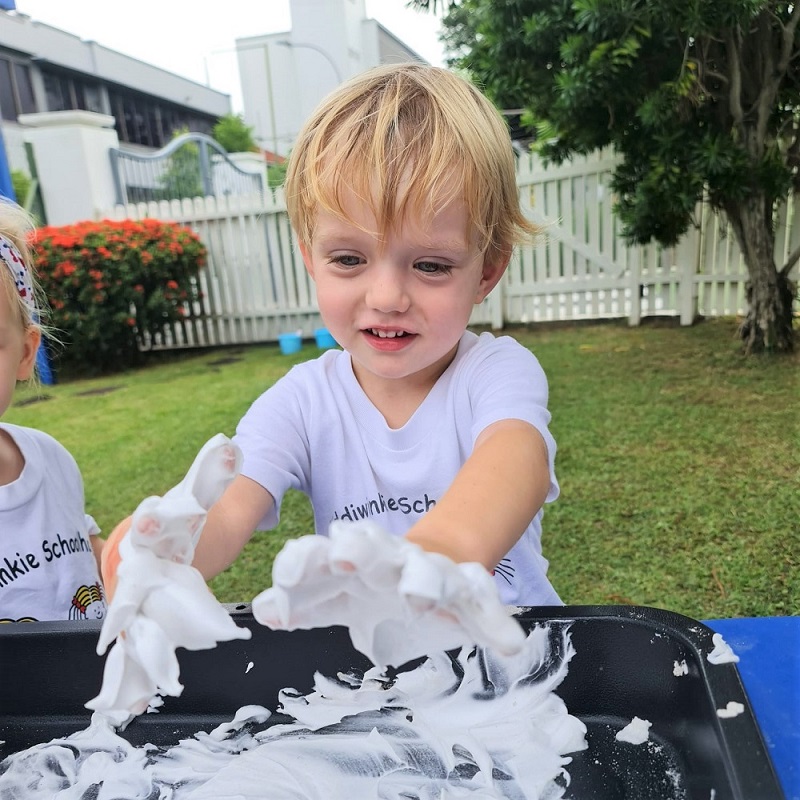Playing is the main way that preschoolers pick up and exercise essential knowledge and skills. According to the Ministry of Education of Singapore, purposeful play seeks to ensure that enjoyable and meaningful play experiences are encouraged or created.
By doing so, play has the secondary purpose of helping to extend learning and developing crucial life skills such as problem-solving, critical thinking, and cooperation with others.
What kinds of play are considered purposeful?
Purposeful play can be as simple as singing nursery rhymes with actions, or even stacking blocks into a tower. The point of purposeful play is not to assign structure or deliberate meaning to play, but for children to find deeper meaning in what and how they are playing.
Here are some ways that preschoolers can benefit from purposeful play in playgroup in Singapore.
Purposeful play hones gross and fine motor skills
One way preschoolers benefit from purposeful play in playgroup is that it improves their gross and fine motor skills in the early years. Whether playing with loose parts or manipulating blocks, pretending to cook, or kicking a ball, children not only have fun but also strengthen both large and small muscles at the same time.
Purposeful play encourages communication with others
One of the wonderful things about playgroup is that there is always someone to play with. When children engage in purposeful play with their classmates, they negotiate thoughts and ideas with each other and learn to make space for each other’s feelings and emotions.
Purposeful play develops literacy and numeracy skills
One of the most common ways preschoolers play is to act out a scene or role-play. In particular, role-playing with each other in playgroup helps introduce vocabulary they may not have encountered at home. They will pick up the natural flow of a story (plot, character, etc), and develop their learning and speaking skills as they create stories together.
Purposeful play helps with cognitive development
Cognitive development is not just about problem-solving and intellect. Instead, children also grow by stretching their imagination and creativity through purposeful play. Soft skills such as focusing and paying attention, remembering and drawing connections, as well as persistence and resilience, are all developed through playing with each other in playgroup.
Purposeful play inculcates a love of learning
Beyond physical development, purposeful play helps children make sense of the world around them in their early years. As teachers help them to explore further, the children have a natural sense of curiosity and excitement to try something new each time.

How does this work in a classroom?
At Kiddiwinkie Schoolhouse, our teachers guide the children through purposeful play, facilitating engaging experiences by providing materials, time and space for the children to fully explore and discover.
Moving forward, this paves the way for a smooth progression to guided inquiry-based learning. With purposeful play-based learning, our preschoolers are encouraged to take the lead with curiosity and interest. This process focuses more on cultivating their growth and development rather than a fixed, static outcome.
Looking for a playgroup in Singapore for your child?
Find out more about our curriculum at Kiddiwinkie Schoolhouse, and book a tour at your preferred centre to see how our children are encouraged to explore, discover and showcase their creativity and imagination.
Follow us on social media to stay updated on our latest updates and happenings:





